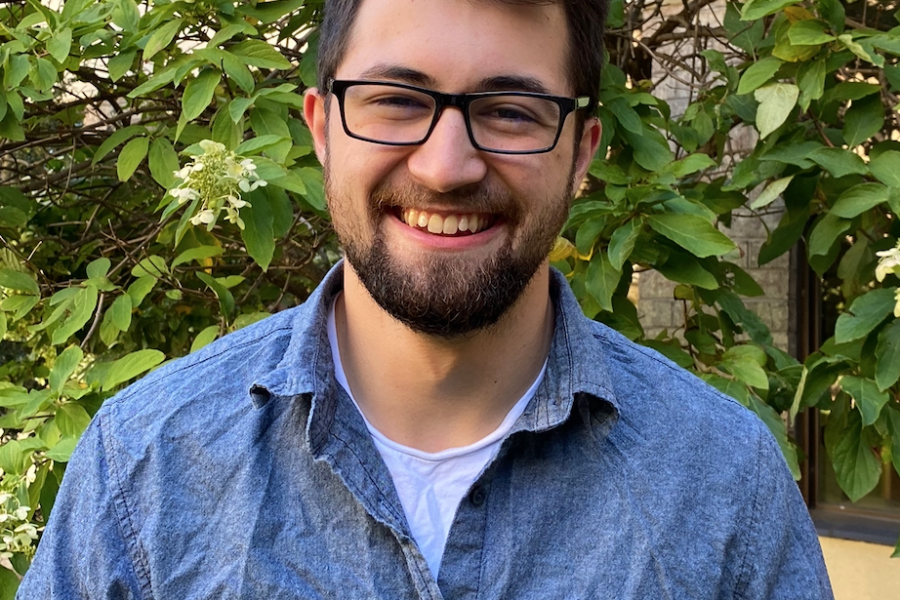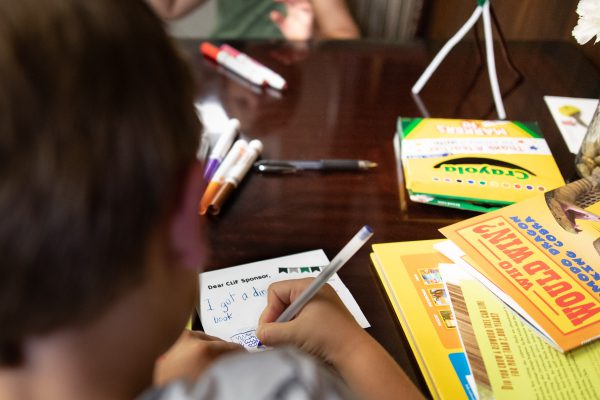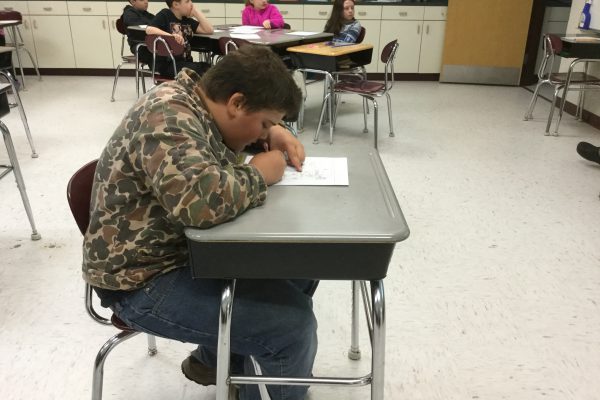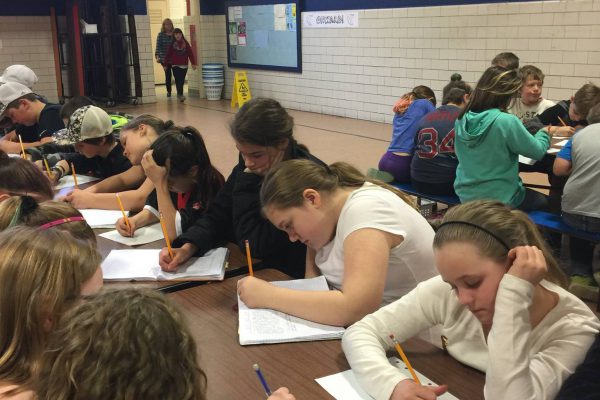
When I was in third grade, I was given a journal to write in, and approximately 20 minutes every day in class to work in it. It was left fairly open-ended: do math problems, write a diary entry, doodle, practice your cursive. While I can’t speak to what the others in my class did, I spent every day writing a story about a man made of fire, his best friend made of coal, and their newfound teammate, made of ash and smoke, as they travelled from one location to the next and fought some bad guy.
Suffice to say, it wasn’t a very complex story, but I went through two or three notebooks just from writing it out every day. And while I don’t remember much about it, I do recall the way I felt when I wrote it. The way my hand danced across the page, leaving words of my own creation in its wake. The way my mind reacted, thinking faster than it did to any math problem, science equation, or attempt to throw or catch a ball. How I made myself laugh, found myself enthralled by my own ideas and plot points–I even found myself sketching character designs. For a shy kid who often kept to himself, I felt confident in my agency, my own ability to really do something for the first time. It felt like I was flying.
Jump to eighth grade, and I’m sitting in English class. By this point, I’ve not written much, but I’ve read through all the Percy Jackson books, The Hunger Games trilogy, To Kill a Mockingbird, and a lot of Marvel comics. My hunger for storytelling was something I never really acknowledged, but often found myself following. Reading made my imagination flourish, and fueled my creativity in ways not yet discovered. But in that English class, we learned about the Greek gods and their myths, and were assigned to write our own story explaining how some natural phenomenon came to be.
A lot of kids, I imagine, weren’t exactly pleased. Writing to a lot of people can seem like a chore. For me, though–thanks in large part to my love of movies, comics, video games, and books–I couldn’t wait to get started. Again, I don’t remember a lot of the story I ended up writing, but the gist was centered around a Hercules-esque outcast who had to fight Kronos. Kronos is thrown into a “fireball” (the sun, in case my 13 year-old self happened to slip that past you) so hard, it spins eternally around the Earth, creating the cycle of day and night
Unlike my time as a third-grader, this time the feeling stuck with me. I was able to grasp that sensation of flight. The confidence, the joy, the pure excitement in getting to write my own story–more than that, to have people read it! I was starting to identify who I was and what I wanted through writing and reading, and as I moved into high school, this identity only grew.
In my sophomore year, I wrote my first web-series. Over the course of two and a half years, I wrote three seasons–60 total episodes, some 800 pages, and a whole cast of friends to try and make it with. I felt like I was walking a foot off the ground the entire time. Through reading different books in school–Catcher in the Rye, Of Mice and Men, Frankenstein, Fahrenheit 451–I began to appreciate the delicacy of writing a novel, and from my own writing, I found the fruits of my labor through friends’ and family’s reactions to what I wrote. Self-serving ego was one thing, sure, but to know it made them laugh, or tear up, or think–to know that I was able to transport them to this invisible world of mine–felt like I was doing something right.
So, from there, it continued. From high school to now, I’ve written about 10 complete novels, 12 short stories, 9 comic scripts, nearly a hundred poems, and a number of screenplays. As with many high schoolers, the academic rigamarole of reading did put a pause on my passion for literature, but as I’ve gotten older, I’ve fallen back into the wonderful, mythical worlds that authors can create, both in literature and comics. I’m reminded of the power stories have to help a person believe; in themselves, in others, and in what they want their life to be.
As an adult, among my fellow hoity-toity writer friends, I’ve come to realize that the magic of writing is being able to dip your head (and hands) into a whole other world–a world most people can’t see–and manage to bring out a story that wasn’t there just a moment before. It’s a magic trick, basically. You see the trick without the wirework. I know all the little tricks and sleight of hand I used to make you think it’s real. At the end of the day, it looks and feels the same to us both: it’s that same sense of wonder, learning, and (hopefully) believing. It’s flying.
So, it felt only natural for me to find my way to CLiF, where the emphasis on reading and writing with kids of a young age is as important to them as it is to me. It can be hard to notice, especially at a young age, but when you’re exposed to the magic of storytelling, whether it’s through writing or reading, you’re bound to find the imaginative capacity inside yourself to become something–whatever it is that you’re meant to be. You find your voice, your interests. You feel, you think, you believe. CLiF is all about giving children that opportunity to believe, and if I can help to get children (especially third-graders with freehand notebooks) interested in the magic of reading and writing, then I think I’ll be doing justice to that 8 year old kid who wanted to fly.



